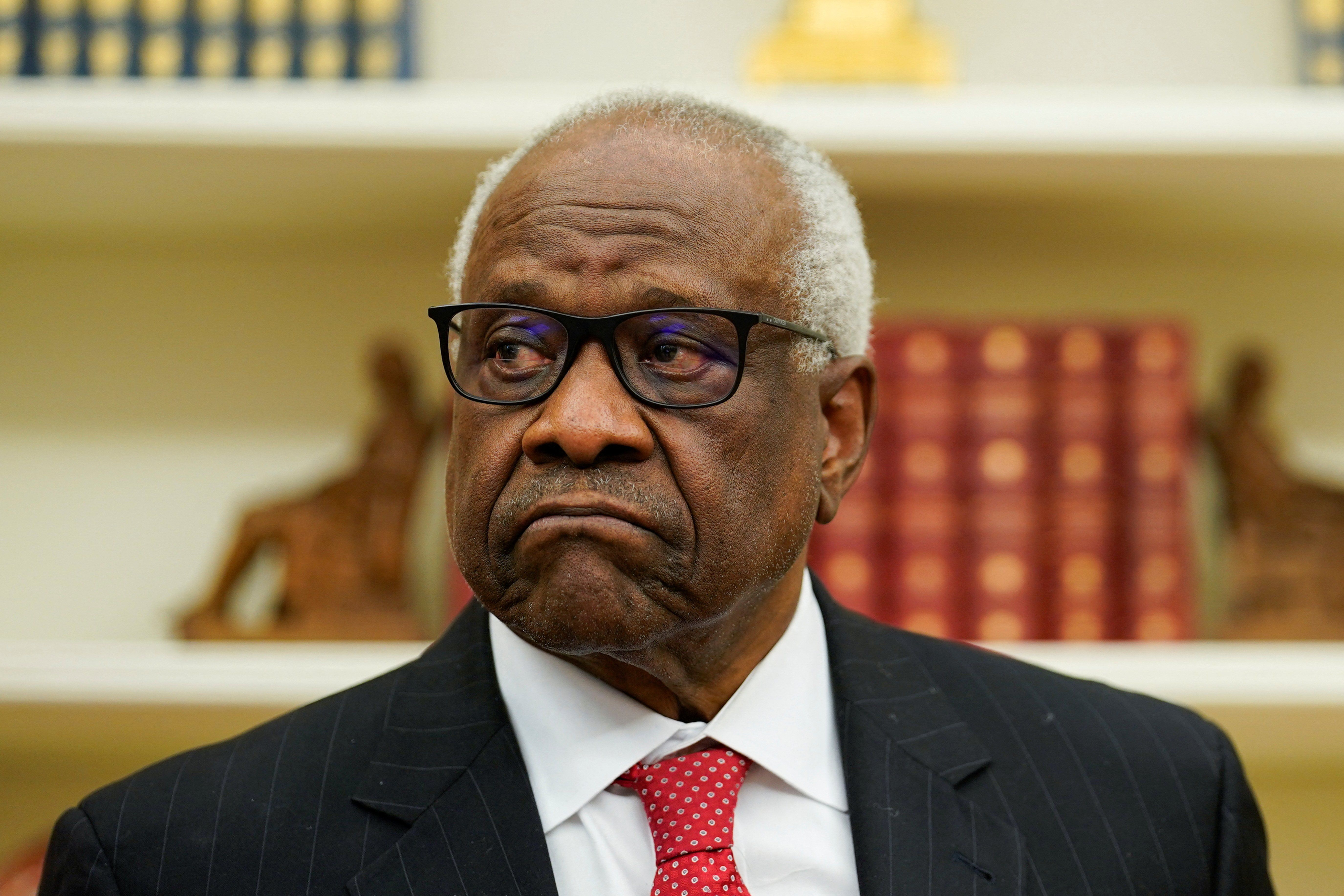The Supreme Court bucked its lengthy streak of letting questionable executions move forward and threw out the infamous death sentence of Oklahoma inmate Richard Glossip, setting the stage for him to get a new trial — but over the objections of Justice Clarence Thomas, whose "bloodthirsty" reasoning would have let him die anyway, wrote Charles Pierce for Esquire.
"Glossip was convicted of hiring out the murder of his former boss at a local motel, and the primary witness against him was the guy who had pleaded guilty to actually committing the murder," wrote Pierce, referring to the testimony of Justin Sneed, who claimed he carried out the killing as a murder-for-hire plot, without prosecutors ever disclosing to the jury that he lied about his use of psychiatric drugs. "Glossip’s trial was an abomination, as the facts about the prosecution that began leaking out over the 25 years that Oklahoma was vainly trying to kill Glossip ultimately indicated."
ALSO READ: 'Gotta be kidding': Jim Jordan scrambles as he's confronted over Musk 'double standard'
"Sneed’s testimony was mainly all that the prosecution had on Glossip, and the prosecution’s finagling became so obvious that even Oklahoma’s attorney general, Gentner Drummond, asked the Supreme Court to vacate Glossip’s conviction, not merely to commute the death sentence but to toss the conviction entirely and order a retrial," wrote Pierce. "In this, Drummond was joined by more than 60 members of the Oklahoma legislature, which never has been confused with an ACLU picnic. If the state tries him again, it will be wasting a whole lot of money."
Despite this victory for justice, wrote Pierce, Thomas' dissent from the decision was chilling.
"His dissent was both bloodless in its reasoning and bloodthirsty in its effect. It began by denying that the court had any business hearing the case in the first place, and then it went on to completely exonerate the prosecution, giving what was clearly some evidentiary jiggery-pokery a pass entirely," wrote Pierce. Thomas argued that "irrespective of whether Sneed lied, prosecutorial correction of his testimony would not have led the jury to infer that he had consciously committed perjury" — a line that Pierce found particularly galling.
"'Irrespective' of whether the witness on whom the prosecution hung nearly its whole case lied?" wrote Pierce. "And it seems to me that there’s a huge burden of proof on those prosecutors to prove they didn’t withhold the problems with Sneed’s testimony precisely so that the jury wouldn’t 'infer' that Sneed committed perjury. But then again, I haven’t been screwing up America since 1991."
